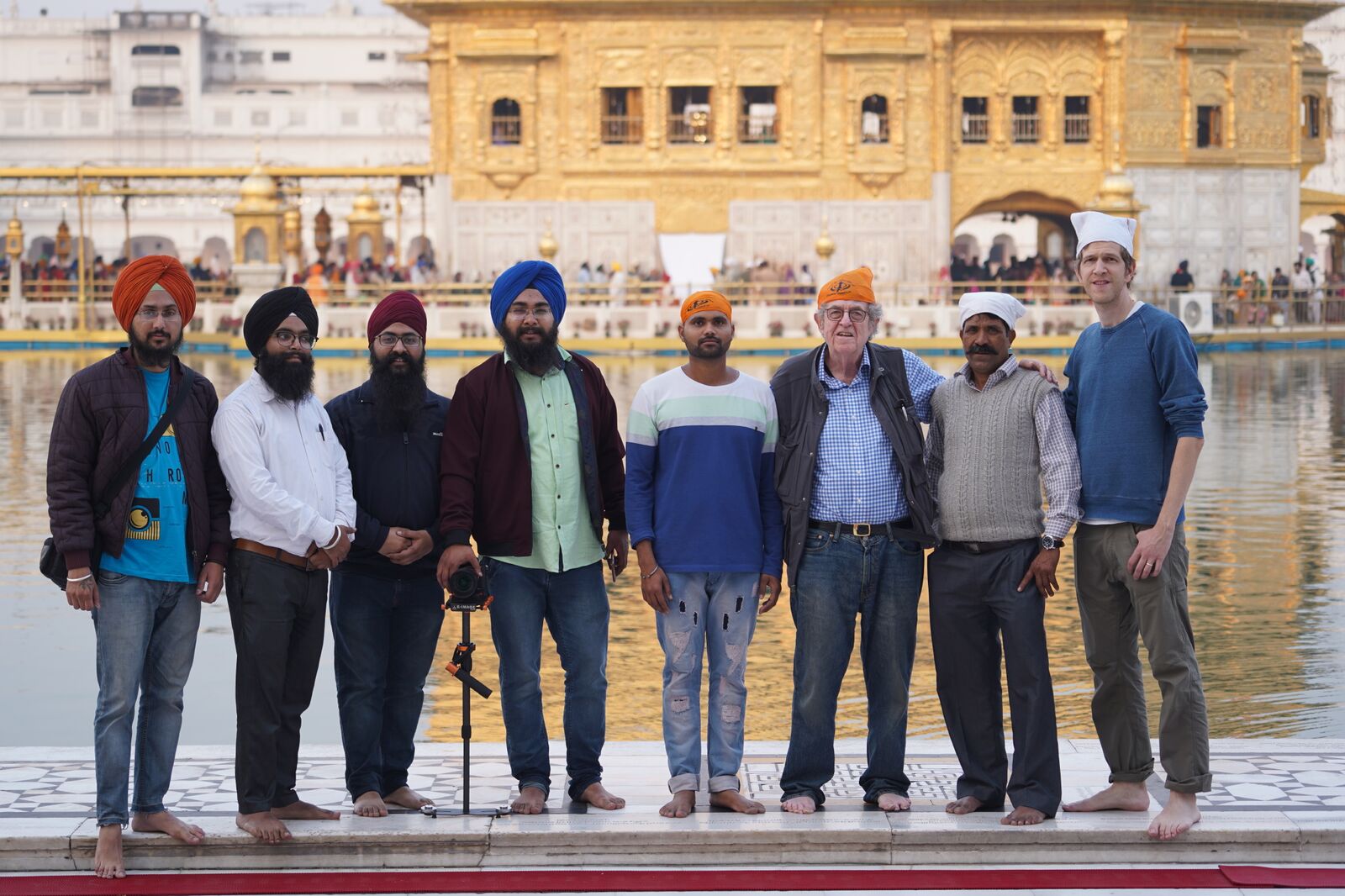Panelists urge greater interfaith understanding

The production crew of the documentary "Guru Nanak," which was screened at the National Press Club on Nov. 20.
The United States should work harder to promote greater understanding of different faiths and religions, panelists said at a movie screening Wednesday night, Nov. 20, at the National Press Club.
In a panel discussion after the premiere of the upcoming public television documentary “Guru Nanak: The Founder of Sikhism - Life and Legacy," speakers said while interfaith dialogue can be difficult and mean a lot of time spent cleaning up misconceptions, it can encourage more tolerance of different beliefs.
"Together, through each other, our similarities outweigh our differences," Gerald Krell, the movie's director, said.
The movie tells the story of Guru Nanak, the founder of Sikhism, as he traveled across India and Southeast Asia and encouraged equality for all, the empowerment of women, environmental protection and service to others.
It marks the 550th anniversary of his birth, and while he is the father of the world's fifth largest religion, little is known of his life.
That lack of knowledge has resulted in misconceptions about Sikhs, particularly in the wake of the September 11, 2001, terrorist attacks when they were mistaken for terrorists and subject to hate crimes and attacks.
But Rajwant Singh, a former president of the Interfaith Council of Metropolitan Washington, said a "marketing" campaign by religious leaders that included running ads on cable television helped shift views of Sikhism in a more positive direction. He said that campaign aimed to "change the perception and educate people."
The movie took around 10 months to produce, and as well as featuring footage from India and Pakistan where Guru Nanak first spread his teachings, it also features Sikh-Americans in their communities. Among those featured are Hoboken, N.J., Mayor Ravinder Bhalla and a truck driver who delivers food and other supplies to cities hit by flooding.
"This is what the message needs to be: that we are here to create fragrance in the world," Singh said. "Each religion has something unique to present."
There are still plenty of hurdles to overcome in encouraging more understanding of different religions, including the fact that very few Americans understand Sikhism or know anything about its founder.
And lost in that lack of knowledge is that Sikhs have been present in American society for over 100 years and have been community leaders, although organizations have sprung up since 9/11 to foster greater religious dialogue among all faiths.
Krell said he hoped it could be a "catalyst for dialogue," and said that when people reach out to those different from themselves, good things happen and progress is made.
With anti-immigrant rhetoric now prevalent in many corners of the United States, speakers said movies such as this that highlight the good things immigrant communities do could serve as a catalyst for wider understanding and encourage less divisiveness.
"I would request to take this film and show it to the White House for there is so much misconception about immigration," Akbar Ahmed, Chair of Islamic studies at American University, said.
